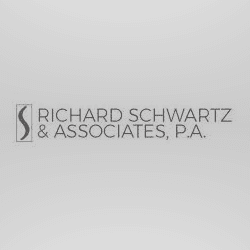Ban the Box
One of the most oft-discussed trends in the background check industry over the past few years has been the legislative movement to “ban-the-box.” We have seen the these laws enacted in states, cities, and counties across the nation for several years now. But what are ban-the-box laws and what do they do mean for your organization? Read on the learn more about this movement and to determine where ban-the-box legislation has been passed, whether or not the apply to you, and how your organization can comply with this legislative trend.
What does it mean to ban-the-box?
The “box” refers to the question on job applications that asks applicants whether or not they have ever been convicted of a crime. Ban-the-box laws require employers to remove this question – as well as any other queries about criminal history – from job applications. Ostensibly, ban-the-box laws seek to prevent employment discrimination against individuals with criminal records. The idea is that an employer gets a chance to form an initial impression of each applicant’s current character before the employer reacts to the to the fact that the applicant has a criminal history. With no questions about criminal history on the job application, and with background checks delayed until late in the hiring process, and ex-offender will theoretically have a better chance of being viewed as “the best person” for the job. However, most ban-the-box legislation places other restrictions and other requirements on employers. For instance, some states prohibit employers from inquiring about arrests, dismissed history, sealed records, or history in a diversion program. Some ban-the-box laws restrict employers from inquiring about criminal history until after the first interview or until a conditional offer of employment is made. Some jurisdictions require employers to consider other factors, such as time-related restrictions or whether criminal history is job-related.How does the law affect what employers can do with background checks?
Do ban-the-box laws also ban background checks? Ban-the-box laws typically do not forbid employers from running background checks on their applicants, but some require a delay in obtaining a criminal background check until after the first job interview or until after a conditional offer of employment is made. Some restrict how an employer can use the information obtained in a background check, some require additional notices be given to applicants, and some delay the firing process by granting a right to appeal employer decisions based on criminal history information. That’s not to say employers can’t disqualify applicants based on criminal history. A conditional offer of employment can be withdrawn , although some ban-the-box laws limit withdrawal to situations where background check findings indicate that an applicant has a criminal conviction the directly affects their ability to perform the job in question. Some ban-the-box laws require employers to consider criminal histories on a case-by-case basis, rather than rejecting all applicants who check the “criminal record” box on a job application or have specific types of criminal history.Latest Trends
Note that new ban-the-box laws are being implemented regularly at this point, both as state or county laws and as city ordinances. In many spots, these laws apply only to public government positions; elsewhere, they apply to both private and public employers. You will want to do some research about your area to learn the specifics of your local ban-the-box laws, or to find out if your state or local jurisdiction in considering such a law. However, for reference, here is a link to our ban-the-box document that charts state and local restrictions on criminal history inquiries and background checks for non-governmental employers. As you can see, ban-the-box laws are complex and they vary from one jurisdiction to another. With the EEOC recommending that employers follow the ban-the-box guidelines – eliminating questions about convictions from job applications, delaying background checks – we expect that these laws will only become more prevalent in the coming years.Contact us
To learn more about the comprehensive LaborChex system and how we can create peace of mind for your business.












